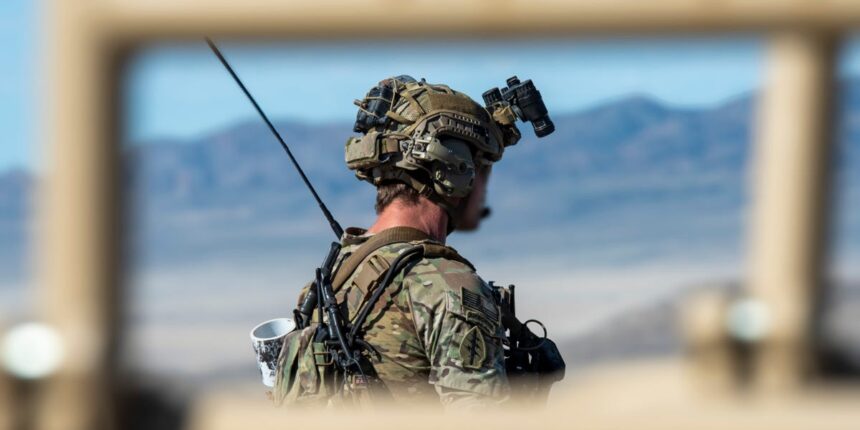In the high-stakes world of military operations, American special forces are increasingly turning to artificial intelligence not as science fiction weaponry, but as sophisticated decision-making assistants. According to recent Pentagon disclosures, these elite units are now deploying AI systems that help operators manage the overwhelming stream of battlefield information, potentially revolutionizing how strategic choices are made under pressure.
“The cognitive load on our operators has become nearly insurmountable,” explains Lieutenant General Jonathan Braga, commander of U.S. Army Special Operations Command. “We’re leveraging AI to reduce that burden, allowing our forces to focus on critical decision-making rather than drowning in data.”
The integration represents a significant shift in military technology application. Rather than replacing human judgment, these systems analyze vast intelligence feeds—surveillance imagery, communications data, geographical information—and present relevant insights to operators in real-time. The approach addresses what military strategists have long identified as “cognitive overload,” a condition where information excess can paralyze decision-making during critical moments.
Pentagon officials revealed that AI assistants now help special forces teams prioritize targets, optimize extraction routes, and identify potential threats more efficiently than manual methods. In one documented exercise, operators using AI support completed mission planning 41% faster than traditional methods while identifying 37% more potential risk factors.
“This isn’t about removing humans from the loop,” clarifies Dr. Eleanor Ramirez, senior defense technology analyst with the Strategic Studies Institute. “It’s about giving our most skilled operators better tools to make more informed decisions under extreme pressure. The final calls still rest with the human operator.”
The development marks a deliberate approach to military AI integration that contrasts with more controversial autonomous weapons systems. Defense officials emphasize that these tools conform to the Defense Department’s ethical AI principles, which require maintaining human responsibility for all lethal force decisions.
Privacy advocates and military ethics experts remain cautious, however. “The critical question is where we draw the line between augmentation and automation,” notes Dr. Marcus Chen, director of the Technology Ethics Foundation. “As these systems grow more sophisticated, maintaining meaningful human control becomes increasingly complex.”
The Pentagon has confirmed that field testing of these AI systems has already occurred in several operational theaters, though specific details remain classified for security reasons. Officials describe the early results as “highly promising,” with special forces operators reporting greater situational awareness and reduced mental fatigue during extended missions.
Military technology analysts suggest these developments signal a broader shift in defense priorities toward cognitive augmentation rather than simply developing more destructive capabilities. The approach aligns with the Pentagon’s broader “Mosaic Warfare” concept, which emphasizes adaptability and information superiority over traditional force metrics.
“What we’re witnessing is the evolution of the information-age warrior,” explains Colonel James Westbrook (Ret.), former special operations commander and current defense consultant. “These tools don’t make the decisions, but they ensure those decisions are based on the best possible understanding of an increasingly complex battlefield.”
As these technologies mature, questions remain about how widely they’ll be distributed beyond elite units and what safeguards will prevent potential misuse. The ethical frameworks governing military AI continue to evolve alongside the technology itself, creating ongoing tension between operational effectiveness and responsible deployment.
In an era where information can be as decisive as firepower, how will these cognitive enhancement technologies reshape not just special operations, but the fundamental nature of modern warfare itself?

























